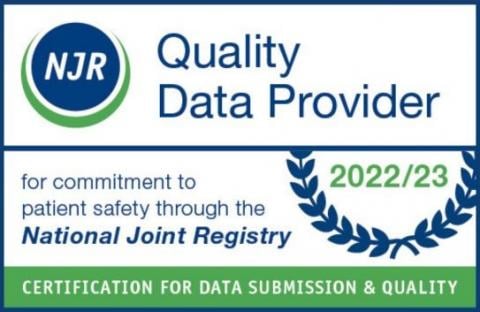
In January 2024, Health Secretary announced new priorities for the first-ever government-led Women's Health Strategy for England. Once again, this has highlighted the ongoing need for improvements and enhanced access to crucial services for women across the UK. The announced key areas of focus included menopause, gynaecological conditions, endometriosis, menstrual and pelvic health among many others.
Health and Social Care Secretary, Victoria Atkins, said:
“We're breaking historical barriers that prevent women getting the care they need, building greater understanding of women's healthcare issues and ensuring their voices and choices are listened to.”
Despite some progress, such as improved access to affordable hormone replacement therapy (HRT) for menopausal symptoms, significant challenges persist. Greater investment in research and education is essential to advance understanding of women's health issues, spanning from menstrual cramps and infertility to pain management and heart disease, a leading cause of death among women.
This underscores the importance of our annual Women's Health campaign, aimed at raising awareness of critical women's health topics and addressing associated taboos. In honour of Women's Health Month, New Victoria Hospital has partnered with JFPR to continue the health panel series "Breaking the Silence".
Women deserve better
As anyone who has cared for a child, family, or a loved one knows, often the demands of being a carer mean that looking after yourself ends up taking a backseat. While a higher percentage of UK women (23.1%) compared to men (17.4%) report providing informal care or assistance7, when it comes looking after oneself, many women tend to delay or avoid seeking medical advice. The NHS GP Patient Survey 2023 identified common reasons for this, including the difficulty to make an appointment (28%), worries about burdening the NHS (15%) and not having enough time (10%).
Another survey by the Royal College of Obstetrics and Gynaecology, revealed that over 60% of women in the UK have at least one symptom of a pelvic floor health issue. However, over half of the women who had experienced symptoms of pelvic floor dysfunction (69%) had not sought help from a healthcare professional because many of them were too embarrassed (21%) or thought that their symptoms were normal (39%).
While those that do seek help can end up waiting on average 18 months or even multiple years to receive a diagnosis. The statistics is particularly dire when it comes to the NHS gynaecological waiting lists – they have grown by over 60% across the UK, which is the most in percentage terms of all elective specialties following the Covid-19 pandemic.
To add to this problem, research has revealed that "social norms surrounding the gendered experience of pain and the acceptability of discussing gynaecological health remain barriers to seeking help and support". Sadly, still a very damaging attitude persists that ‘women's issues’ should be dealt with quietly, stoically, and alone.
At New Victoria Hospital, we understand these challenges and frustrations and seek to provide a quick and easy access to the highest level of care and personalised treatment plans to improve every patient's quality of life and help them regain comfort, control and overall wellbeing. We strive to provide a relaxed environment where every woman feels safe and comfortable to discuss their concerns with our leading healthcare specialists.
Our Consultants and healthcare specialists, working as part of multi-disciplinary teams where appropriate, provide a wide range of dedicated Women's Health services for patients of all ages and at every stage of their lives. With over 150 Consultants available, along with the convenience of many tests being accessible on the same day as your consultations, we ensure efficient and effective addressing of your healthcare concerns, from tests to diagnosis and prescribed treatment.
We are an independent hospital that has cared for multiple generations of patients for over 125 years, benefiting greatly from tremendous support from the local community. We treat everyone with compassion and strive to provide exceptional medical care and expertise to each patient. New Victoria Hospital is where compassion meets exceptional care.
Panel discussions ‘Breaking the Silence’
At a time when your health issue may take longer to get diagnosed due to the NHS waiting lists, or you are struggling to find the right pathway with your GP, our health panel discussions Breaking the Silence offer a deep dive into some of the most common conditions shedding light on symptoms that are too often normalised or dismissed due to misinformation or embarrassment.
Our discussions provide free advice from leading women's healthcare specialists, and we would like to encourage everyone to take this rare opportunity and send your questions through our social media comments section. Keep an eye on our channels for the upcoming Breaking the Silence discussions with the next topic being Uterine Fibroids, the non-cancerous growths that develop in or around the womb (uterus). Although it is a common condition affecting at least 2 of out 3 UK women, those who experience symptoms feel that they can destabilise their lifestyle through heavy periods, abdominal pain, lower back pain, constipation or general discomfort. Some fibroid growths can also affect fertility if left untreated. A hysteroscopic resection is the most common surgical treatment to remove fibroids, although many women feel that a full hysterectomy is the only way to treat and prevent further growth.
Our upcoming ‘Breaking the Silence’ Uterine Fibroids episode will seek to uncover a little more about what is available to patients at each stage of their journey to health and what more can be done to safeguard women who are prone to this condition.
Our first discussion in March 2024 explored some of the most asked questions surrounding Endometriosis, from the reasons behind delayed diagnoses to the economic impact in the UK.
In our second and latest discussion, we focused on Menopause and the Pelvic Floor and were honoured to be joined by Miss Rhiannon Bray, one of our leading Consultant Urogynaecologists at New Victoria Hospital, and Elizabeth Joseph, a writer and menopause advocate. We touched upon topics such as the impacts of hormonal changes, how they affect sexual health and contribute to bladder issues, and what can be done to strengthen the pelvic floor.
Please watch the full Menopause and the Pelvic Floor video below or on our YouTube and Vimeo channels.
Our aim with these panel discussions, articles, and social media posts is to raise awareness among women about their health and empower them to speak out rather than suffer in silence. There are positive signs indicating that women's awareness has improved in the past few years, partially due to social media platforms enabling them to share experiences, connect with others facing similar challenges, and feel empowered to seek help when needed.
In recent years, many new businesses have recognized the opportunity to address gaps in the market and knowledge base, offering services and products such as period trackers, fertility monitors, and pelvic floor trainers giving rise to the new and booming business sector FemTech. The growing range of digital solutions for women's health presents opportunities for empowering women and for better care and more cost-effective outcomes.
It is also heartening to note that not only the Government, but also universities and various organizations are investing in educational programmes. The Government's acknowledgment of persistent issues offers hope that further action will be taken in the years ahead.
For more information on these and more Women's Health Services or to book an appointment, please call our Outpatients department on 020 8949 9020.













